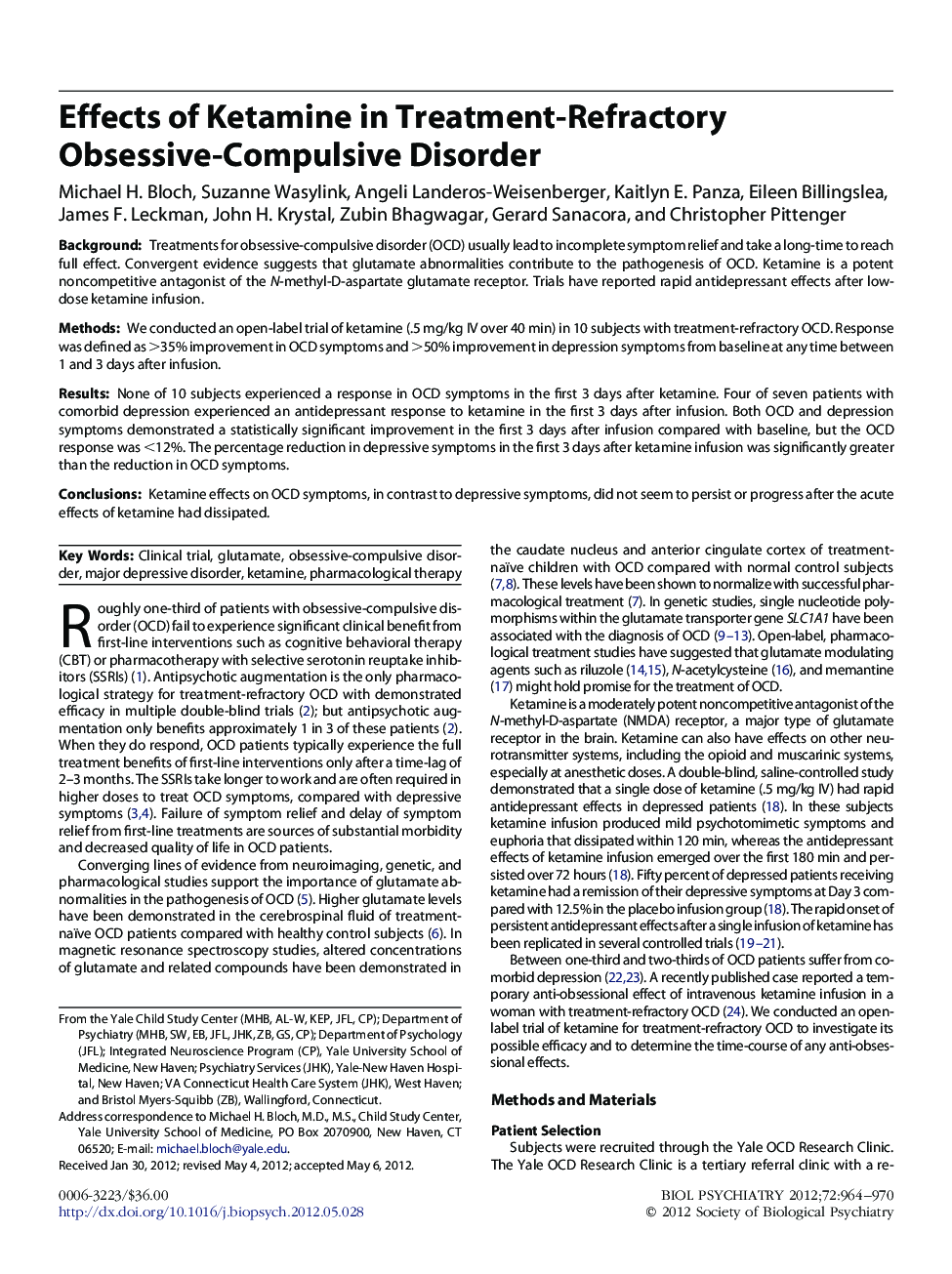| کد مقاله | کد نشریه | سال انتشار | مقاله انگلیسی | نسخه تمام متن |
|---|---|---|---|---|
| 6227450 | 1276447 | 2012 | 7 صفحه PDF | دانلود رایگان |

BackgroundTreatments for obsessive-compulsive disorder (OCD) usually lead to incomplete symptom relief and take a long-time to reach full effect. Convergent evidence suggests that glutamate abnormalities contribute to the pathogenesis of OCD. Ketamine is a potent noncompetitive antagonist of the N-methyl-D-aspartate glutamate receptor. Trials have reported rapid antidepressant effects after low-dose ketamine infusion.MethodsWe conducted an open-label trial of ketamine (.5 mg/kg IV over 40 min) in 10 subjects with treatment-refractory OCD. Response was defined as >35% improvement in OCD symptoms and >50% improvement in depression symptoms from baseline at any time between 1 and 3 days after infusion.ResultsNone of 10 subjects experienced a response in OCD symptoms in the first 3 days after ketamine. Four of seven patients with comorbid depression experienced an antidepressant response to ketamine in the first 3 days after infusion. Both OCD and depression symptoms demonstrated a statistically significant improvement in the first 3 days after infusion compared with baseline, but the OCD response was <12%. The percentage reduction in depressive symptoms in the first 3 days after ketamine infusion was significantly greater than the reduction in OCD symptoms.ConclusionsKetamine effects on OCD symptoms, in contrast to depressive symptoms, did not seem to persist or progress after the acute effects of ketamine had dissipated.
Journal: Biological Psychiatry - Volume 72, Issue 11, 1 December 2012, Pages 964-970